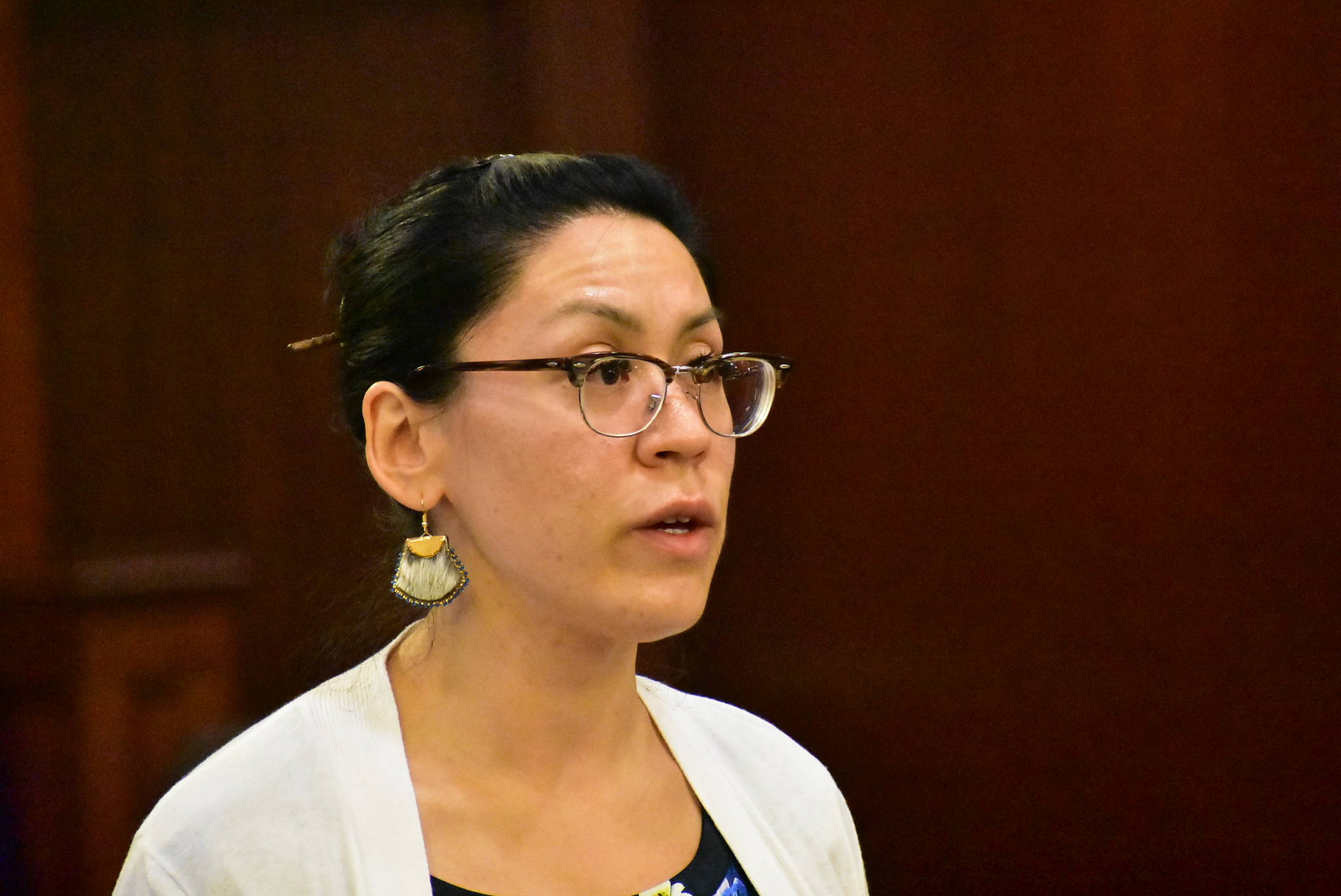The House voted Tuesday to officially recognize the state’s 229 already federally recognized tribes.
“This bill would officially end an era of colonial thinking,” the bill’s sponsor Rep. Chuck Kopp, R-Anchorage, said on Friday.
The bill would simply bring the state in line with long standing precedent established by the federal government and the U.S. Supreme Court, Kopp said.
The bill was originally introduced last week, but concerns over the crisis caused by COVID-19 took precedence, and it was rolled to future floor sessions.
The bill had 20 sponsors by the time it reached its final reading, only one shy of the 21 votes it needed to pass in the House.
“Indigenous people were pushed off their lands under treaties,” Kopp said Tuesday. “There have been lots of times where the United States hasn’t lived up to its words.”
In Alaska there were people who weren’t that far removed from the era of assimilation, said Rep. Tiffany Zulkosky, D-Bethel. Her father, she said, was not allowed to speak the Yupik language as a young man.
“Recognizing Alaska’s tribes is an important part of the state’s healing moving forward,” she said.
But the bill was not universally accepted, and some members had questions about what exactly the it did.
The bill’s sponsor claimed the law would be largely symbolic, Rep. David Eastman, R-Wasilla, said. But that raised the question of why a symbolic gesture needed to be codified in law when it could be done in a resolution or citation.
“I understand from the enthusiasm that this bill is not merely symbolic,” Eastman said. “This is much more sweeping in nature, and I take it to be a step towards a changing of our state’s relationship with members of tribes in our state.”
Rep. Ben Carpenter, R-Nikiski, was similarly concerned about what changes were included in the bill.
“There’s a disparity here between what I’m reading and what I’m hearing,” Carpenter said.
The sponsor statement for the bill talked only about formal recognition, he said, but supporter statements from Alaska Native organizations said the law would remove certain barriers to providing services to their citizens.
“How can both be true, how can the sponsor statement and statements of support from organizations who evidently stand to gain from this bill, who expect that barriers will be removed for services and support,” Carpenter said, “yet the sponsor statement only speaks to formal recognition and nothing more.”
It is true the bill would do more than just enshrine a recognition of tribes. But supporters of the bill said the law would merely acknowledge what has been true in the state for some time.
Rep. John Lincoln, I-Kotzebue, said the bill was similar to the state passing a law recognizing the presence of Denali.
Tribal governments already work with the state on a number of issues according to Richard Chalyee Éesh Peterson, president of the Central Council of Tlingit and Haida Indian Tribes of Alaska. Peterson previously told the Empire that when tribes enter into an agreement with the state, tribes have to sign waivers for their right to sovereignty because that sovereignty is already recognized by the federal government.
“It’s always been a little awkward when we sign those,” Peterson said.
But, Peterson said, the symbolism of the bill was still powerful.
“Just a simple act of recognition can heal decades of hurt,” he said. “One of the things that will happen for the larger community of Alaska, this will normalize the thought of tribes as sovereigns.”
The bill passed the House with 31-5. Voting against the bill were; Carpenter; Eastman; Mike Prax, R-North Pole; Delena Johnson, R-Palmer; and Colleen Sullivan-Leonard, R-Wasilla.
Although present for the floor session Tuesday, Rep. George Rauscher, R-Sutton, was not in the room for the vote and was marked absent from the vote.
The bill will now go to the Senate.
• Contact reporter Peter Segall at 523-2228 or psegall@juneauempire.com.

